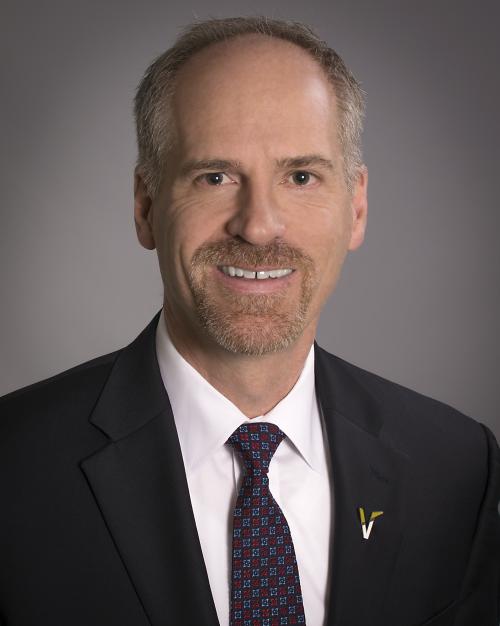
The finalists for WashingtonExec’s Pinnacle Awards were announced Oct. 8, and we’ll be highlighting some of them until the event takes place virtually Nov. 12.
Next up is Business Executive of the Year finalist Ken Shreves, who’s vice president of business development and capture at Vectrus. Here, he talks success, learning from failures and other career advice.
What key achievements did you have in 2019/2020?
2019 and 2020 were banner years for our company’s new business growth. Not only did we retain critical incumbent positions, we had a 100%-win rate on incumbent bids in 2019 and won new business at a rate significantly higher than industry averages.
This success was a result of a BD team that truly came together, bought in to a new way of executing proposals and how they think about selling our services. Of all the incredible success we achieved, clearly the largest is winning a seat on the Army’s large LOGCAP contract. Not only did we win a seat but we won two geographic areas to support Army contingency operations.
That win not only solidifies our position in the contingency services industry but it positions Vectrus as a leader in that space.
What has made you successful in your current role?
Any success I may have achieved is directly a result of the team of professionals that make up the Vectrus BD organization. My role is to lead, teach, coach and mentor that group. I have a true belief that everyone is doing the best they can. My role is to show them new approaches, new ways of looking at problems, new ideas on how to gain a competitive advantage and then bring the team along. Understanding that I don’t have all the answers, encouraging the team to push back, to devise their own approaches and creating a culture of innovation and ingenuity are really the keys to our success.
What are you most proud of having been a part of in your current organization?
While the wins are nice and seeing the company truly grow has been rewarding, the thing of which I am most proud of is watching the growth and evolution of the BD team. This team of incredible people went from feeling like they didn’t have the empowerment to express their opinions or challenge leader decisions to a group that now thrives on taking initiative, on being integral parts of problem solving and solutioning and are totally invested in our corporate growth and success.
How do you help shape the next generation of government leaders/industry leaders?
Of all the questions posed, this one is the most critical to me. As a career Army officer before I moved into industry, the importance of training the next generation is deeply imbedded in my psyche. Our corporate goal is long-term growth and to do that we need a new generation of leaders. The key to developing that next generation is to seek out that talent and then help to mold and shape it.
We have an aggressive program to promote from within our company whenever possible. We have several leaders within the BD organization that may have previously been overlooked or just not given the opportunity for advancement. Finding those individuals and then putting them on a path with a senior mentor to help them think larger than their current position and then watching them blossom has been a true joy.
In order to shape the next generation, we must all take the time to do so. People have so many talents that may be hidden, it is our job as leaders to put them into positions where they are challenged and can grow.
What’s one key thing you learned from a failure you had?
I have often said that you can learn more from failure than through success. Failure in the BD world keeps you humble. Our industry is full of incredibly bright, hardworking and focused people. No win is easy. Through failure you learn to question your assumptions, look for reasons why you lost, look for areas to really be innovative to win the next time.
Failure is also a great leadership lesson. It shows the team that sometimes, we all do our best and still may not win. So, our best may no longer good enough. We must constantly strive to be better; we must find better ways to give our customers what they are truly looking for.
Failure breeds future success as long as the corporate culture allows true introspection without finger pointing or blaming. The goal is to be better tomorrow than we were today. Failure is a great teacher.
What’s your best career advice for those who want to follow in your footsteps?
Never stop learning, never think you know everything, never believe your own press, believe in your team; if the team fails, then the leader didn’t do the best of job ensuring success. We are a people business, understand how to motivate people to do their best, reward those that do the hard work. Be firm but fair. Learn the details of our business, learn the language of business.
Our job in BD is not simply to win work. Our job in BD is to win work that allows the company to grow. As a BD professional, you must understand how profit and loss is done in your company, and you must understand the implications of your bid on the P&L and how our operational teammates will need to execute the concept that you put in the proposal.
Most importantly, become the expert in your business, trust your team, empower your team, have fun, stay grounded and stay balanced. You team is watching you, when you have a work-life balance, they will as well. Finally, as the leader, accept the blame for losses, distribute the accolades for wins.

